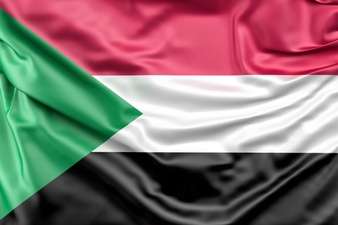The smuggler is threatening the poultry sector with chickpeas
2018-11-07
The recovery of the poultry sector in Homs after a forced absence for years because of terrorism encouraged educators to re-establish education and production and license new houses, but found themselves faced with a new challenge, which is the smuggler who is at the top of the list of threats to the sector to the point of threatening to stop him from work.
The fledgling poultry, which has become the main concern and the talk of poultry farmers in their meetings and meetings with the concerned, warns of the closure of hundreds of houses, even in the most crowded areas of this profession, which has not been affected significantly during the past years, especially Tlalkkh and villages in the western center, The level of Homs is 531 Mdana, followed by the villages of the eastern center with 89 Mdjana and Al-Qaseer with 56 Mdjana and Teldo 50 Maddana and Almkram 20 Madjana and Rastan 6 Madajan.
Issa Aboud, head of the poultry farmers' committee in Homs, asked: "Why is the price of the smuggled chicken less than the local chicken?" Warning that if the smuggled poultry continues to flow, most of the poultry farmers will stop working because of economic inefficiency.
Abboud called for finding a solution to the high prices of feed, which directly affect the price of chickens and provide fuel for the housing during the times of education with specific allocations and ensure the electricity supply continuously.
Dr. Abdul-Alim Khorasan, Vice President of the Syrian Association of Poultry Medicine returned to the breeding of the chickens in the town of Tel Omri after a break of five years because of the crisis, stressing that the benefit of some of the smuggling will affect a wide range of breeders where sold kilograms kiln smuggled 500 pounds while the cost of production Kg of one kilogram of local chicken about 600 pounds and with a calculation equation shows that educators will have to stop if the smuggling continues.
The poultry farmers suffer from the difficulty of licensing the houses because of the regional map of the province, which often hinders the license in the western region, in addition to the high prices of feed and the fluctuation of the price of sauce in the local market and the lack of the availability of heating materials in a timely manner to educate sometimes and the disproportion of the sale price of chickens with the costs High.
"I will not be able to continue if the smuggling does not stop," said Amer Halawani, owner of a feed factory and a broiler for the production of chicken and chicken broth. "We have to stop the customs tax on feed to allow Competing with the smugglers.
"The issue of smuggling of chickens has been raised in the sessions of the People's Assembly and I call upon the concerned authorities in all ministries and customs to expedite the finding of a radical solution to maintain the continuous work of the houses and avoid the expected and future losses of the breeders," said Ahmad Kasir al-Ali, head of Homs Chamber of Agriculture and member of the People's Assembly.
Head of the branch of the Union of Veterinarians in Homs Dr. Ahmed Shahoud confirmed that the licensed poultry increased from 1702 mdjana in 2011 to 1768 mdjana in 2017, while the number of non-licensed houses currently operating 450 mdhana card million and 900 thousand birds.
Shhoud explained that the poultry sector is large and is currently operated by more than 550 families in addition to the owners of muddajn (sowayk breeding slaughterhouses and it is necessary to support and secure the mechanism that reinvigorates and provide real job opportunities for many rural people with reasonable income.
The reluctance of breeders to raise chickens will inflict heavy losses on the branch of the Poultry Organization in Homs, according to its Director General Mohammad Qaimer, which shows that the production of the institution of the sauce will be losing about 4 million pounds every three days if educators refrain from education.
Kaimar stressed that this issue is raised in all official meetings and calls for an end to smuggling and the abolition of the customs tax on feed, which is still high compared with neighboring countries, pointing out that 70 percent of the cost of chicken production is concentrated in feed.
Director of Internal Trade and Consumer Protection in Homs Rami Al Yousef stressed that the rationing controls are on a daily basis to detect the sales shops of the chicken and check the invoices and prices and will work to tighten the control to prevent any case of smuggling or violation of law.
According to the Director of Customs Homs Sulaiman Shmeis is monitoring and checking all cars loaded with furry, even small ones, adding that has been caught several irregularities related to the smugglers and became a phenomenon almost finished in the markets.
The profession of raising poultry in Homs is one of the most popular occupations because of the speed of production cycle and thus the speed of the capital cycle and can be operated by different categories of agricultural engineers, veterinarians, feed factories, medicines, educators and traders.

 Syria
Syria Lebanon
Lebanon Egypt
Egypt Jordan
Jordan Iraq
Iraq Sudan
Sudan Palestine
Palestine